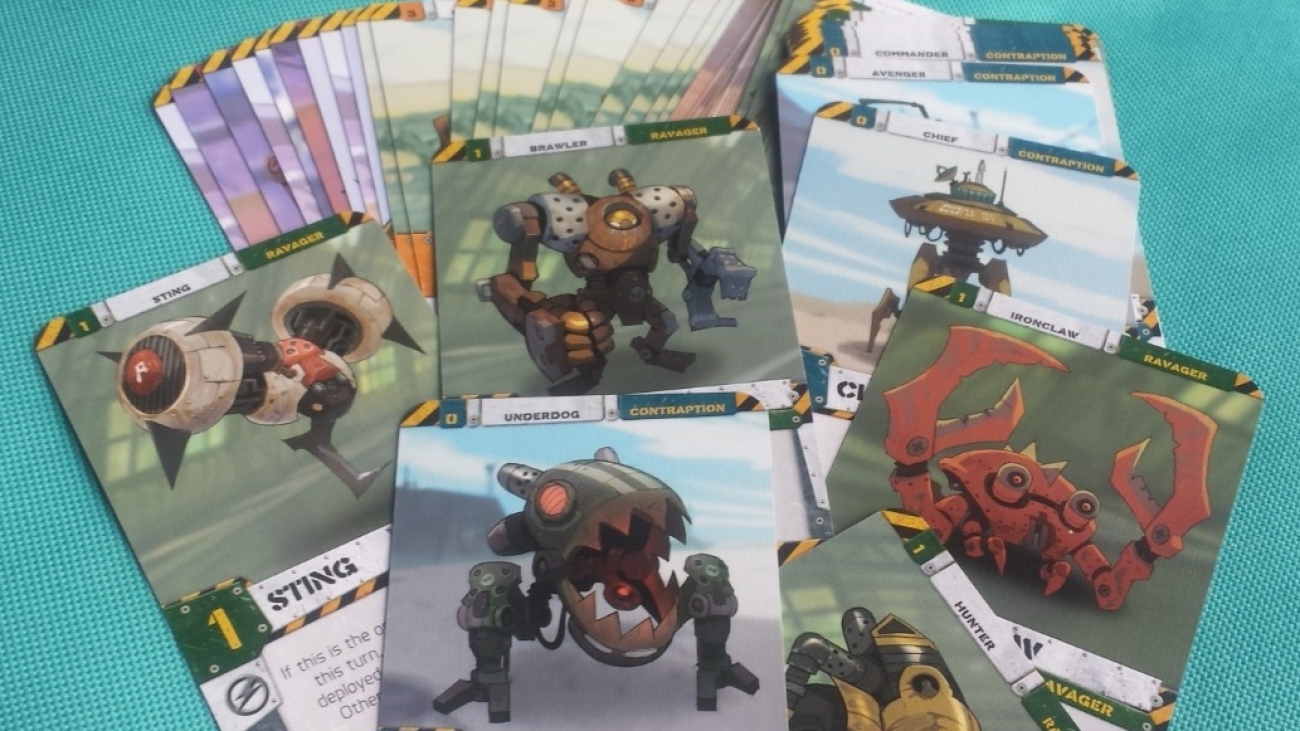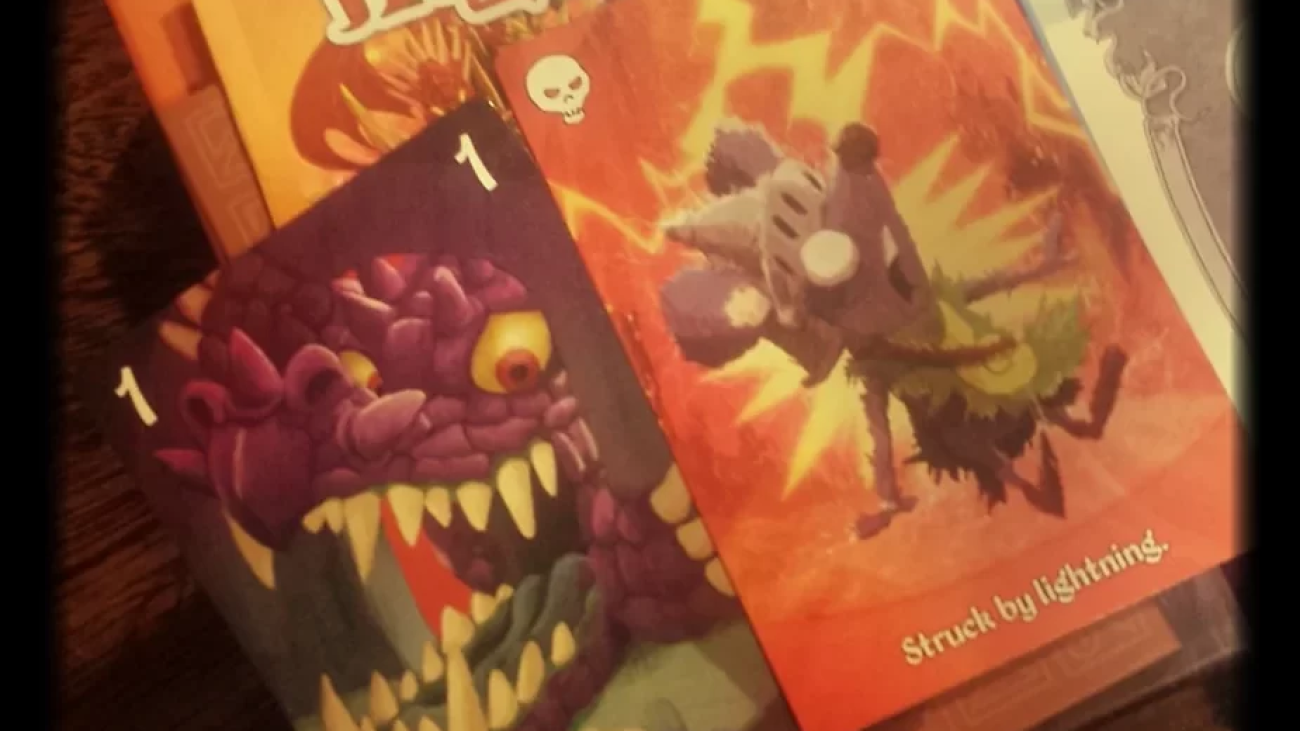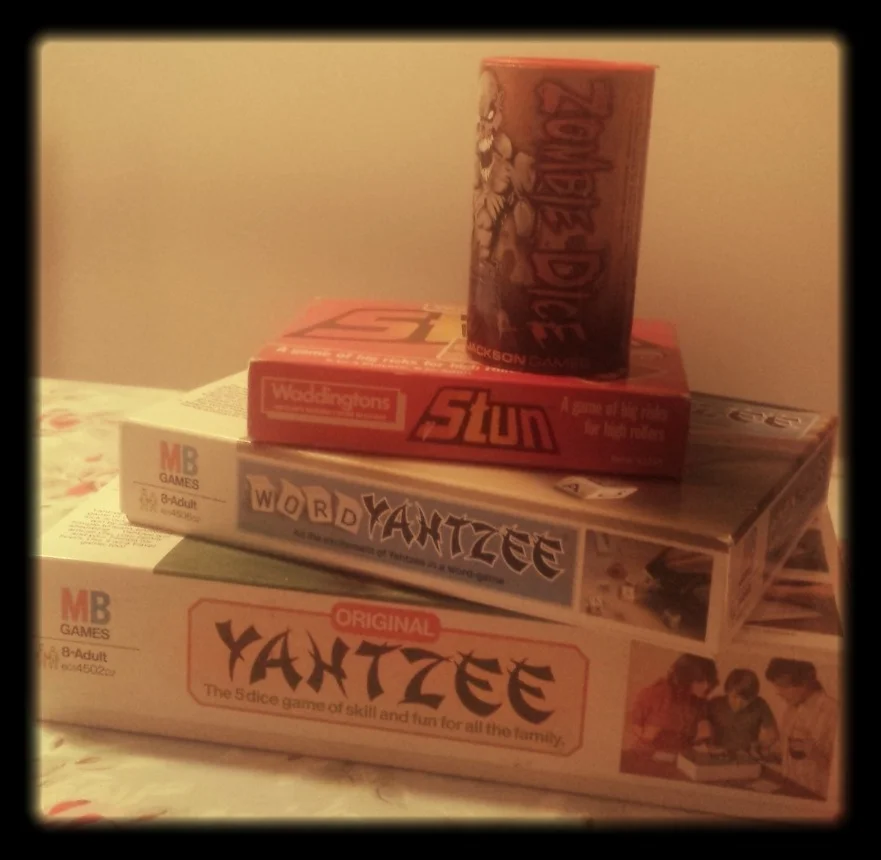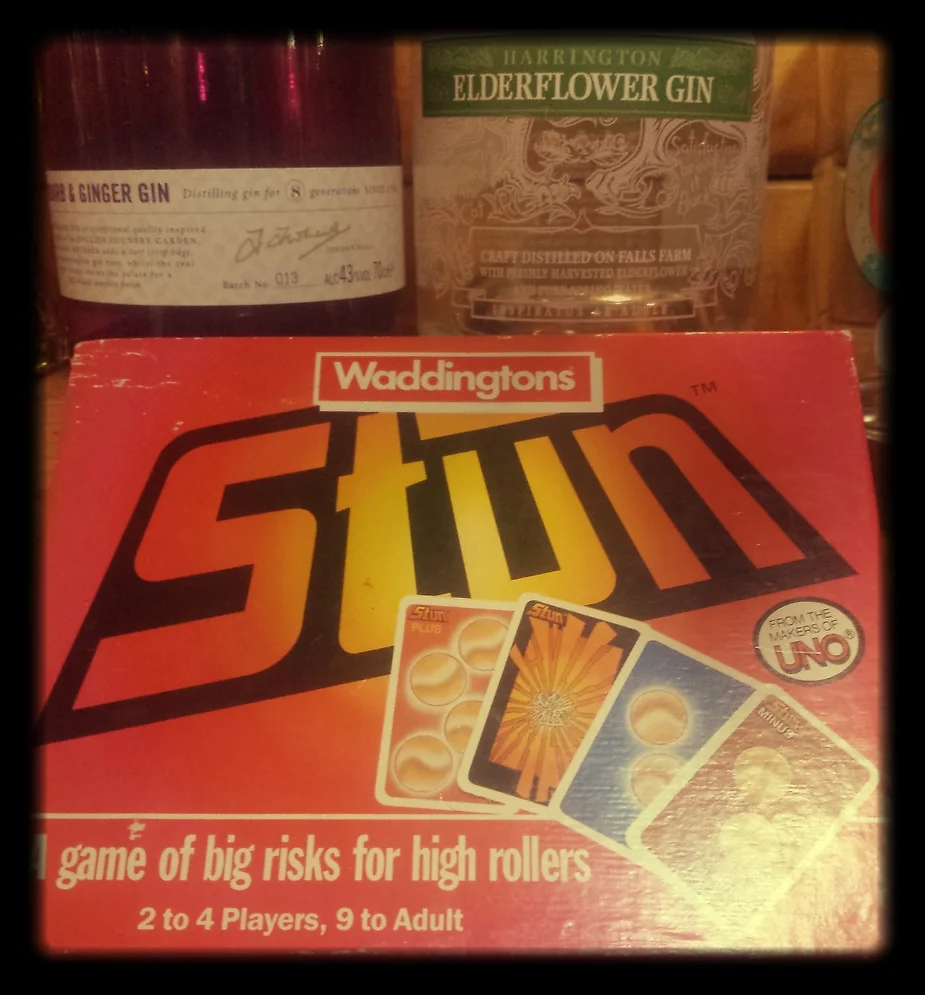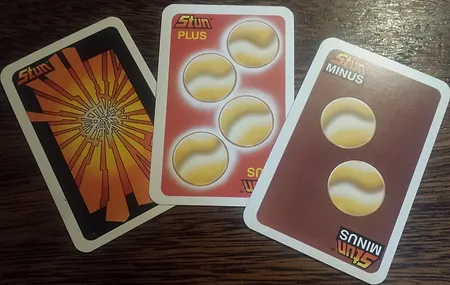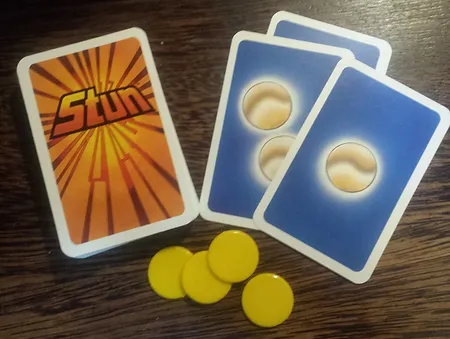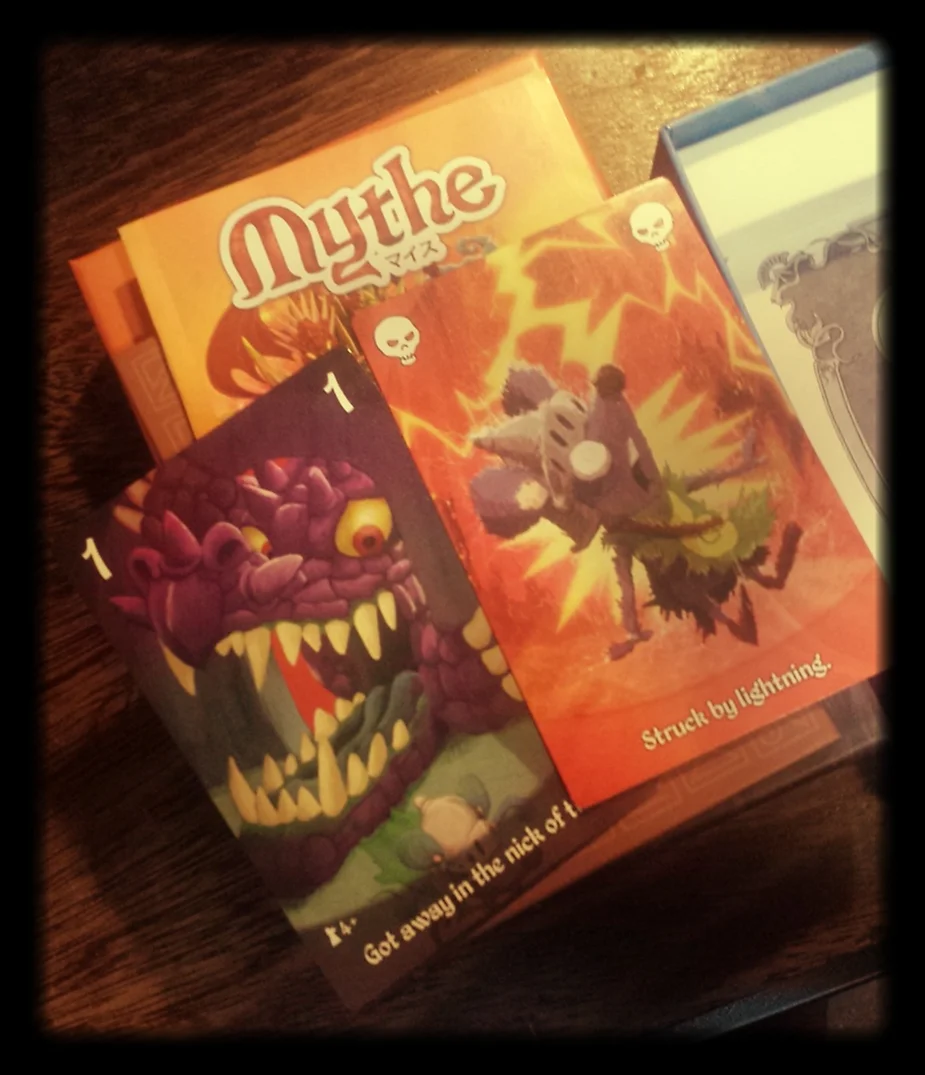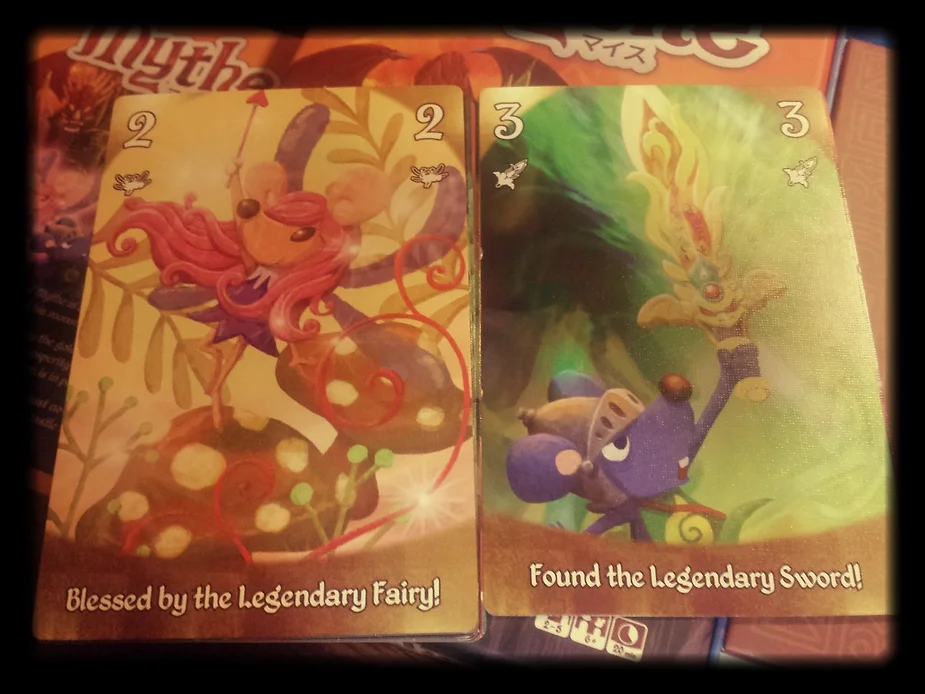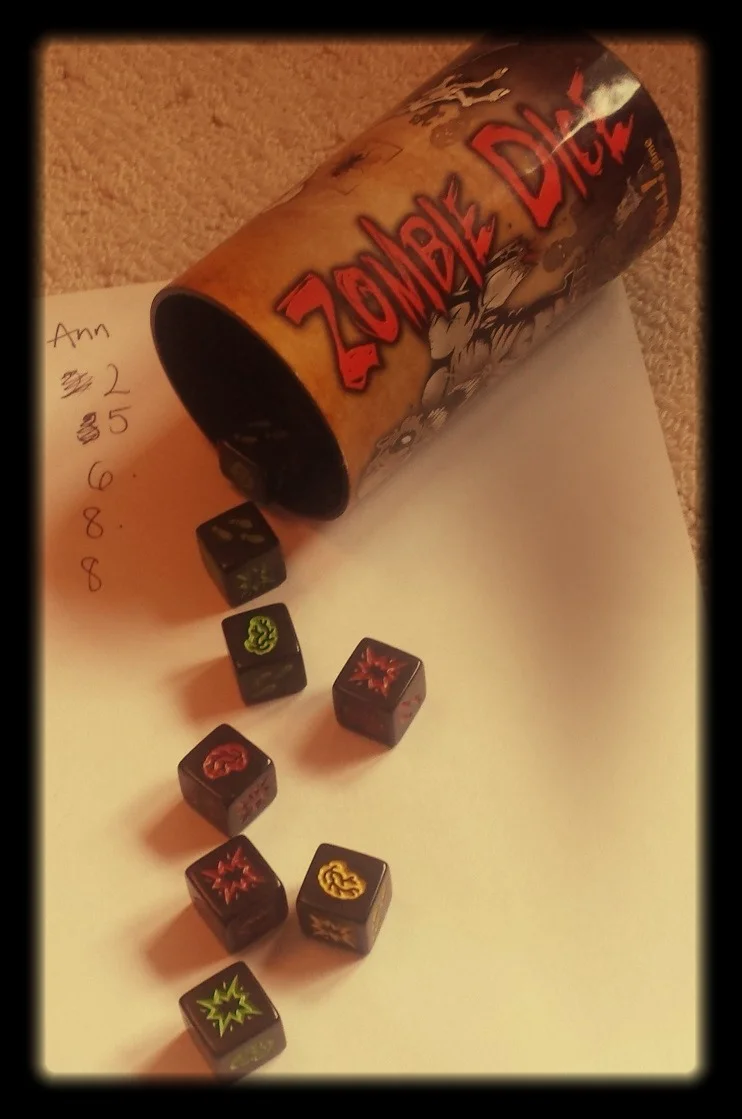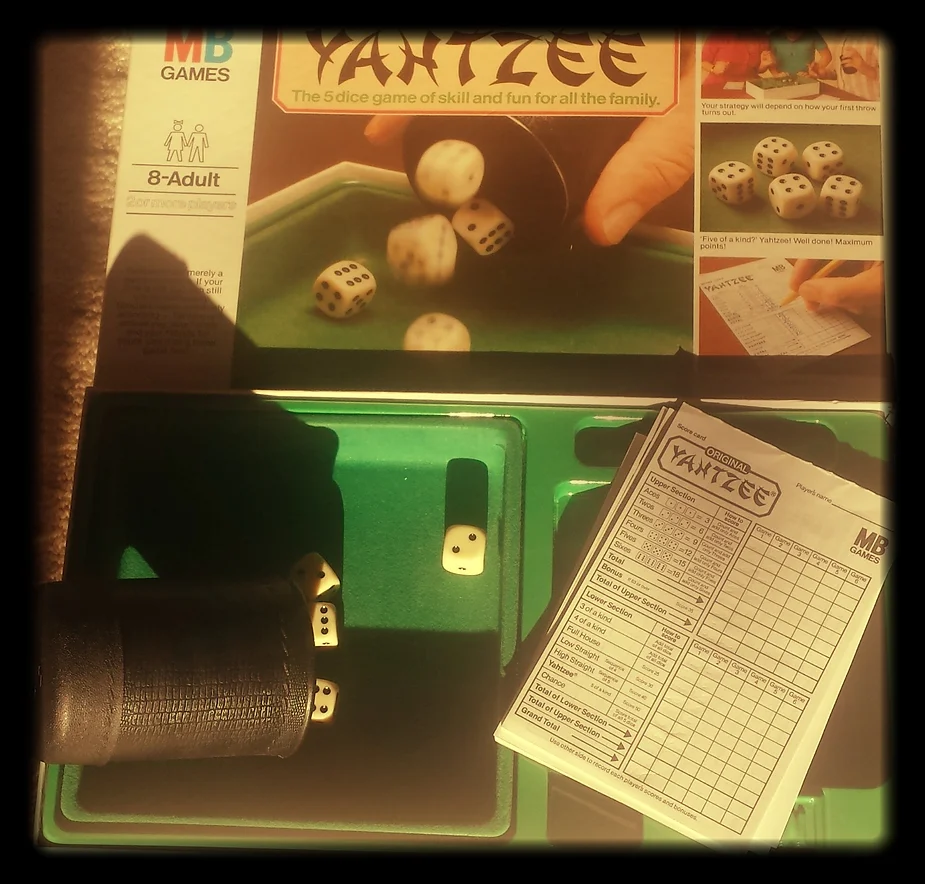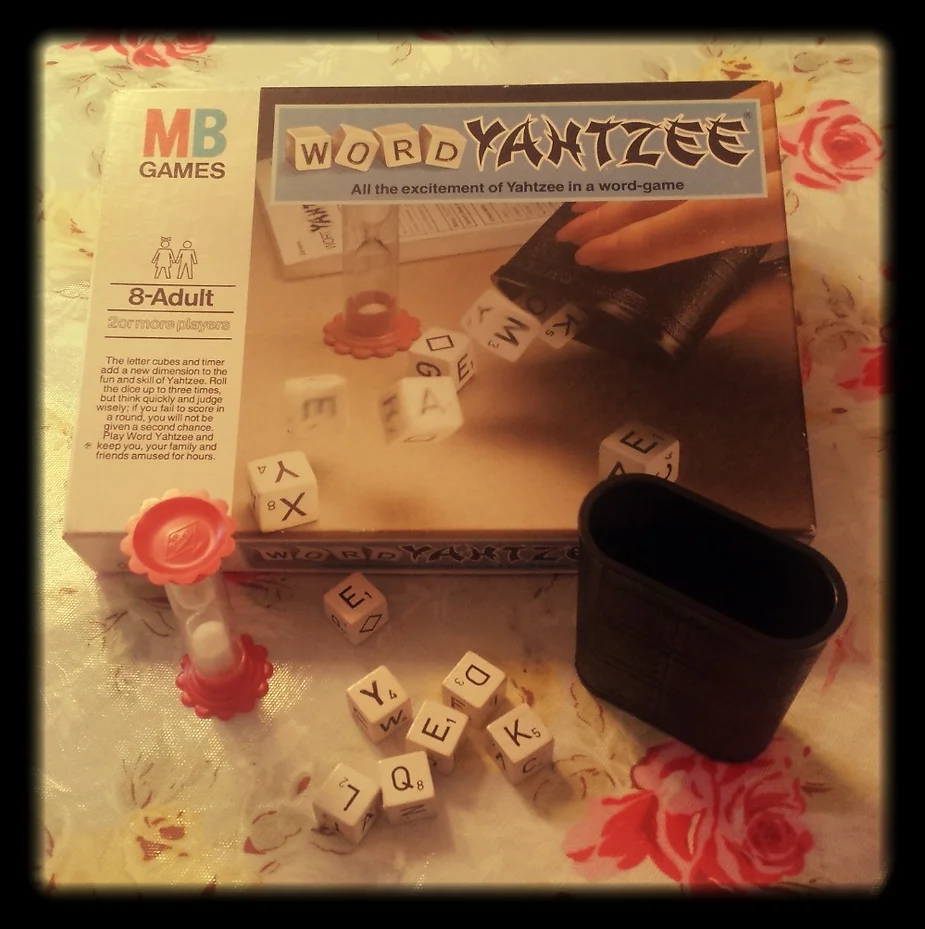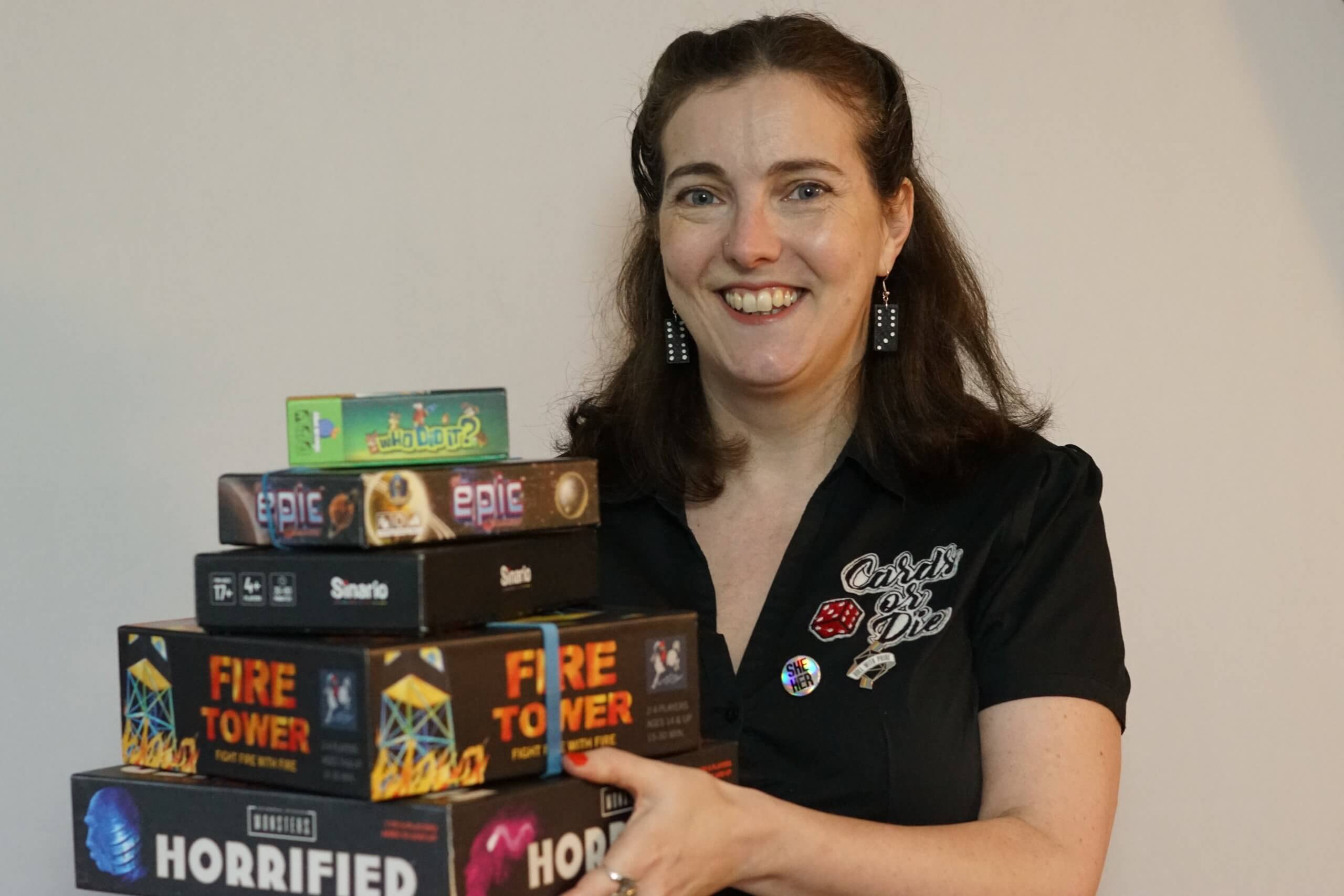Awesome artwork and Alliteration – if only it had puns I could end my search for the perfect game.
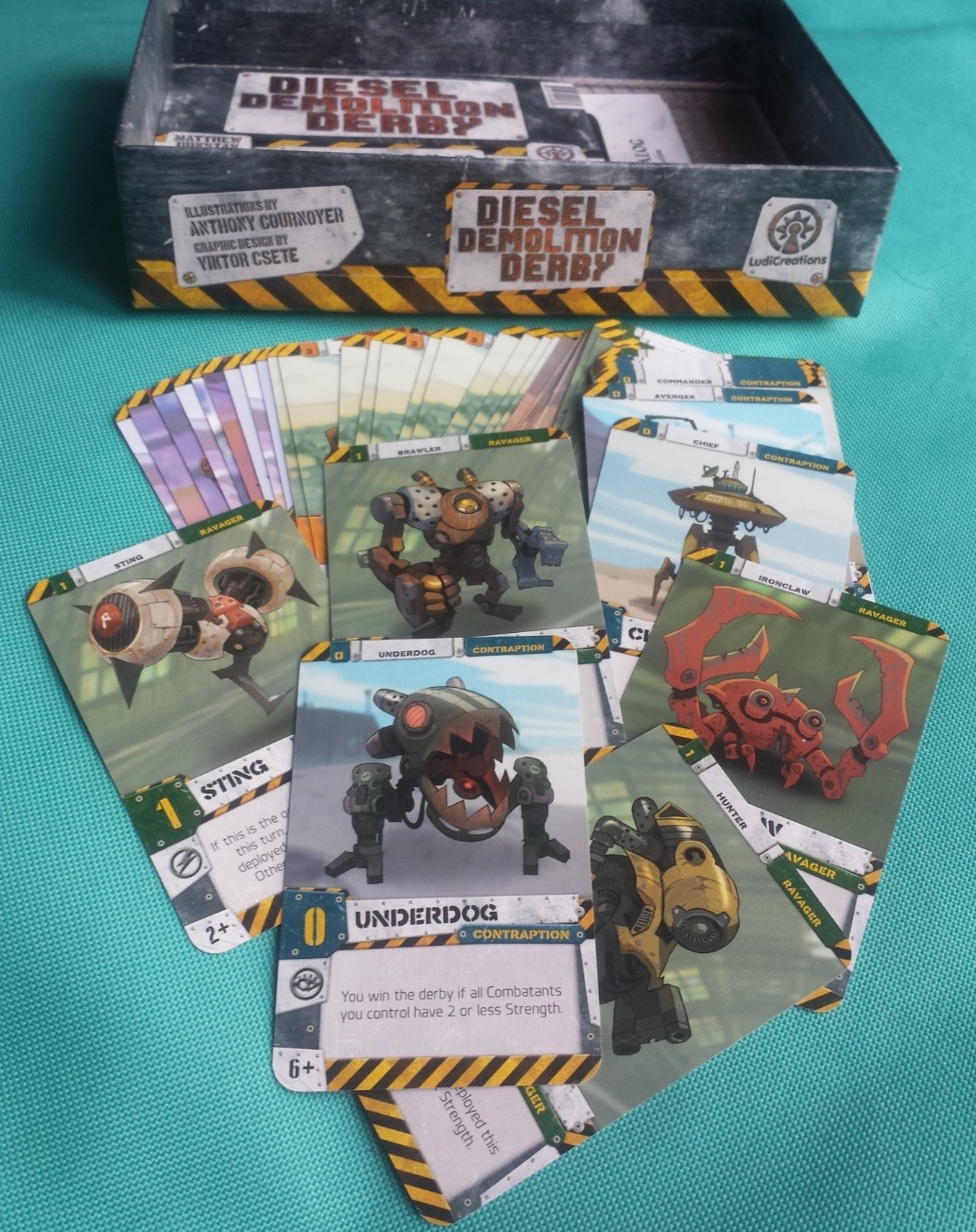
Diesel Demolition takes about 30 minutes to play and is quick to learn. It says suitable for ages 14 and up but really it is a straightforward mechanic; 8 or 9 year olds would manage it. 2 to 6 people can play and as it true of so many games – the more the merrier – or the more the more deaths (which is essentially the same thing. Isn’t it?)
Game Play
Diego is keen to just get playing, she’s a busy cat, she doesn’t have time for complex rule books.
- Each turn you choose a combatant from your hand.
- Everyone places their chosen combatant face down in front of you.
- All reveal combatants simultaneously.
- Resolve the effects on the cards (starting with the instant/ lightening effects of the highest points value). This can result in your card being discarded or neutralised. This means that every time you play a card you are taking a calculated risk.
- Then, you pass your remaining hand to the left and you repeat.
- The person with the most powerful line-up of combatants* triumphs in the Derby
*One thing we have learnt from this game is that the word combatant is the sort of word that once you’ve said combatant too many times it feels like you are saying combatant wrong. Just putting it out there so that you can share that weird feeling!
Although I find this mechanic challenging – I’ve got enough on trying to remember what my plan is when my cards are in front of me, nevermind trying to calculate what everyone else is likely to do and which cards I’ll get back- I really enjoy this game. Challenge is good for your brain and I feel like I’m definitely getting better at it each time I play. If only my son wasn’t also honing his tactics, victory would be in sight by now.
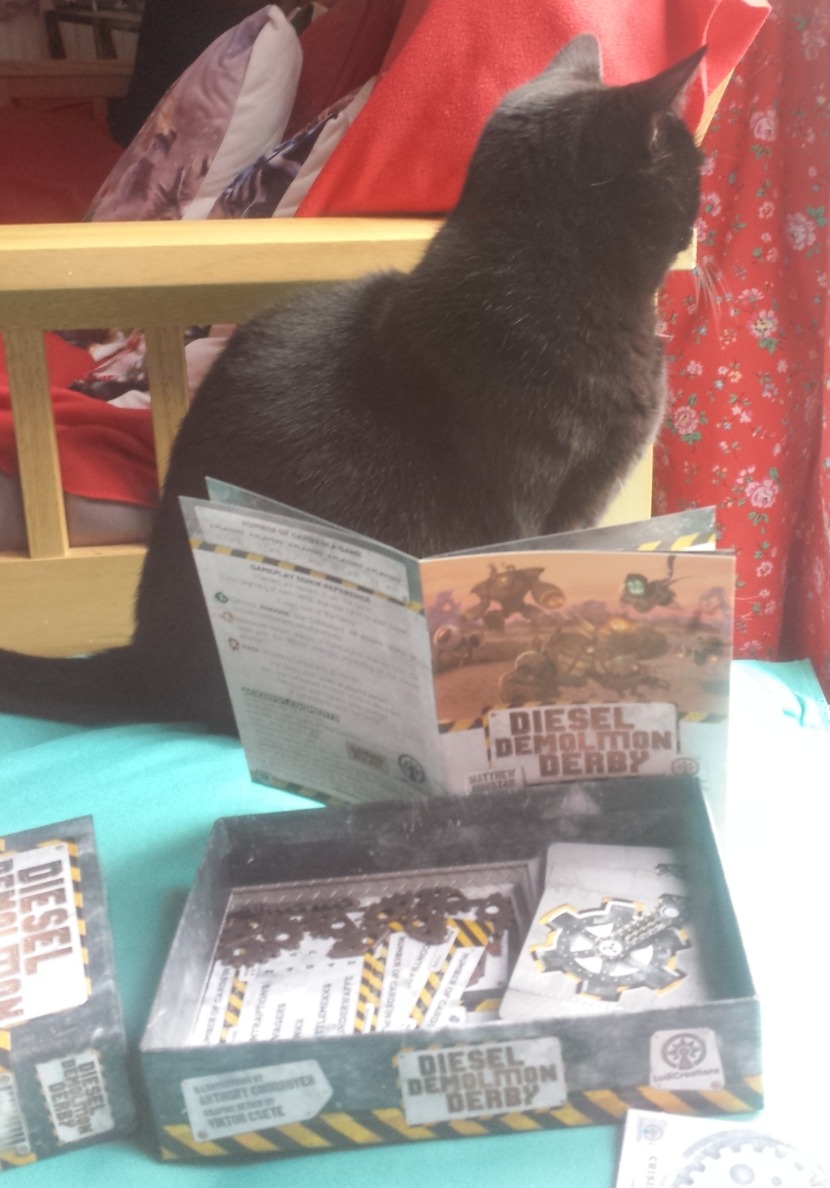
Arenas
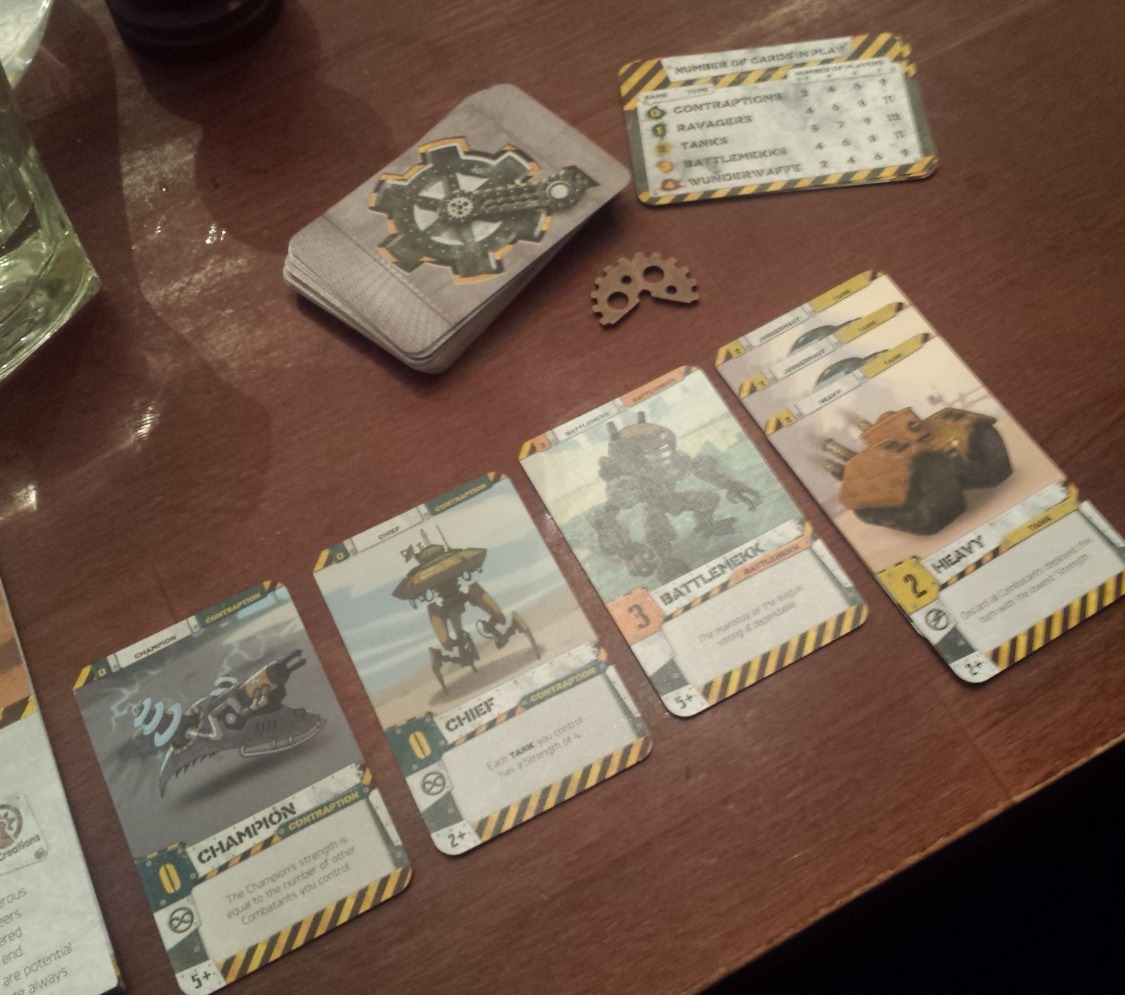
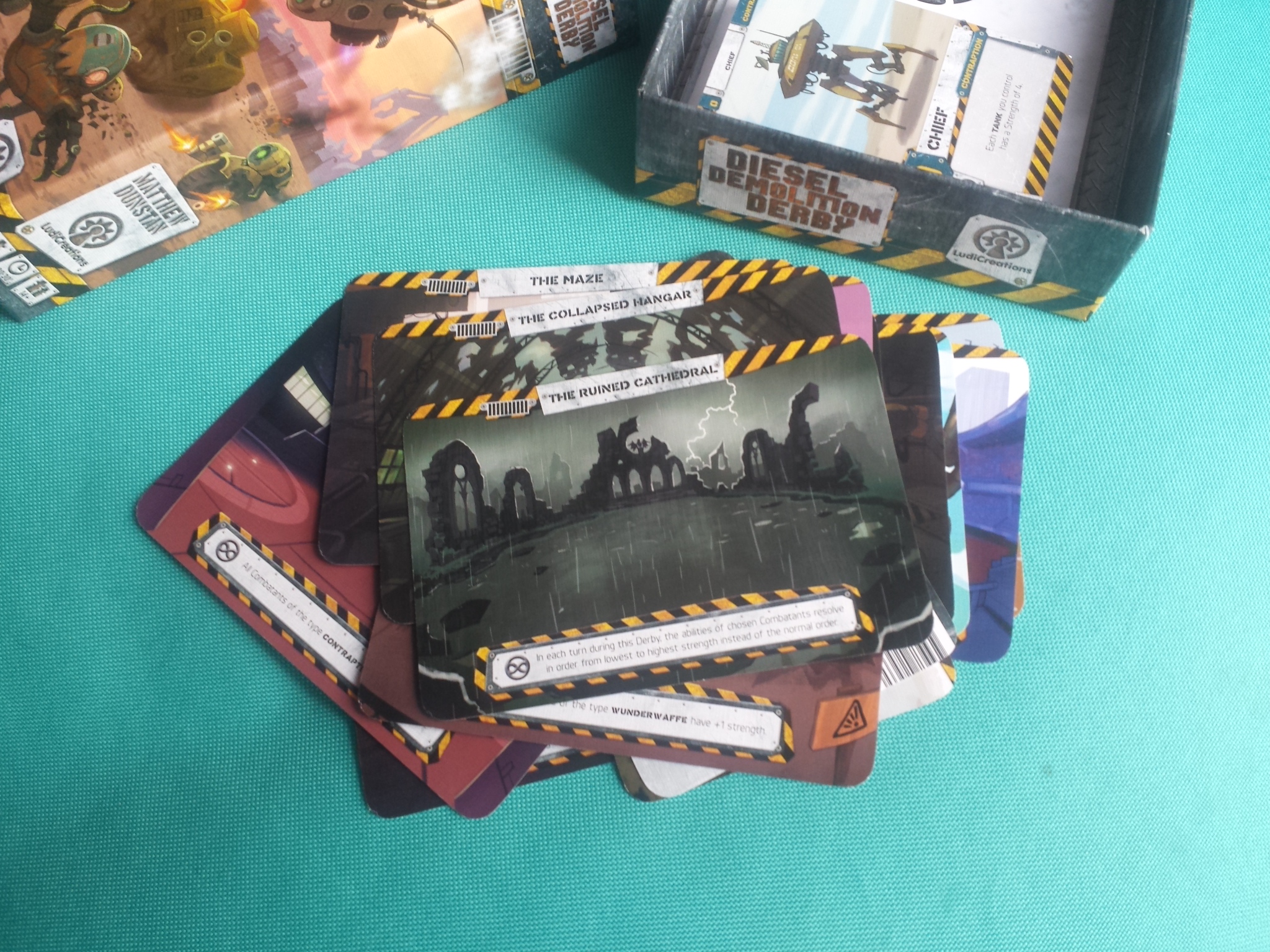
They recommend that you have a run through without Arenas first and we have done that when introducing people to the game. It’s always good to have an element that you can play with or without – it lends the game variety and allows you to differentiate according to who’s playing or what mood you are in. Some Arenas resolve at the end of a Derby and others have a continuous effect throughout. We haven’t played all of them yet but I’m loving the extra layer of strategy that they add. (As well as the gothic images of course!).
Plays 2 to 6
I have played this as a two player games lots of times, and it’s good fun. But with 5 or 6 players cards like the Champion come into play. The Champion allows you to win the Derby by having the most or the fewest cards deployed (instead of most powerful line-up)… it completely changes your tactics and received a mixed response in our group. We were evenly divided between thinking it was a terrible or genius idea. (It wasn’t just the person who won by using it who thought it was genius – just to be clear.)
Playing with more cards and more players allows you to play valuable combinations of cards; your machines can work together to destroy your opponents. It also means you can’t just remember what cards are in each hand. Most games are better with more people in my experience, just because it’s a more sociable experience. But the full range of this particular game is best experienced by playing with 5 or 6.
In addition the cards are very clearly labelled so sifting out the cards for 4+ or 5+ players is a quick, easy job. This is a quick access game on all levels and I like that. A lot.
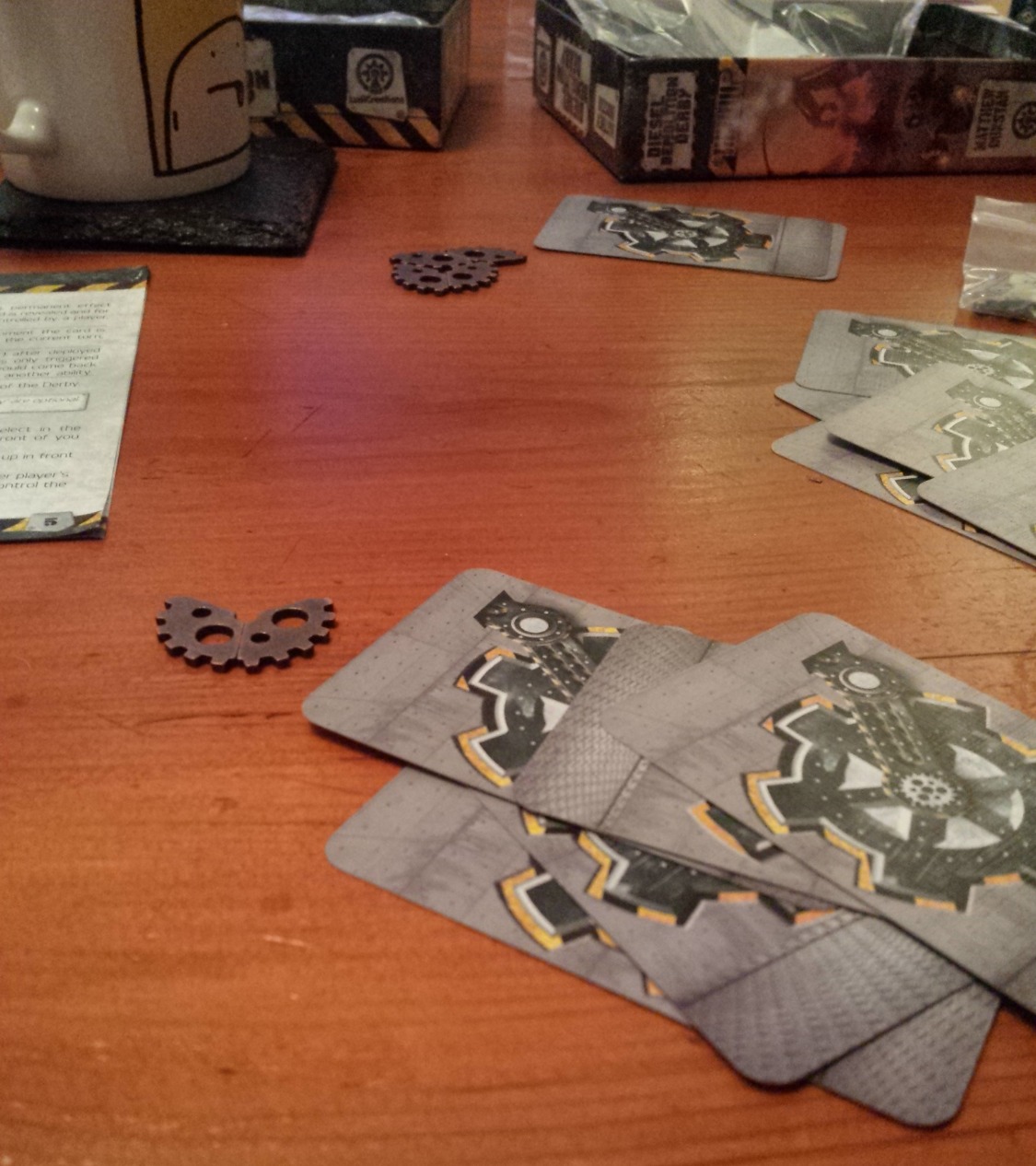
Components
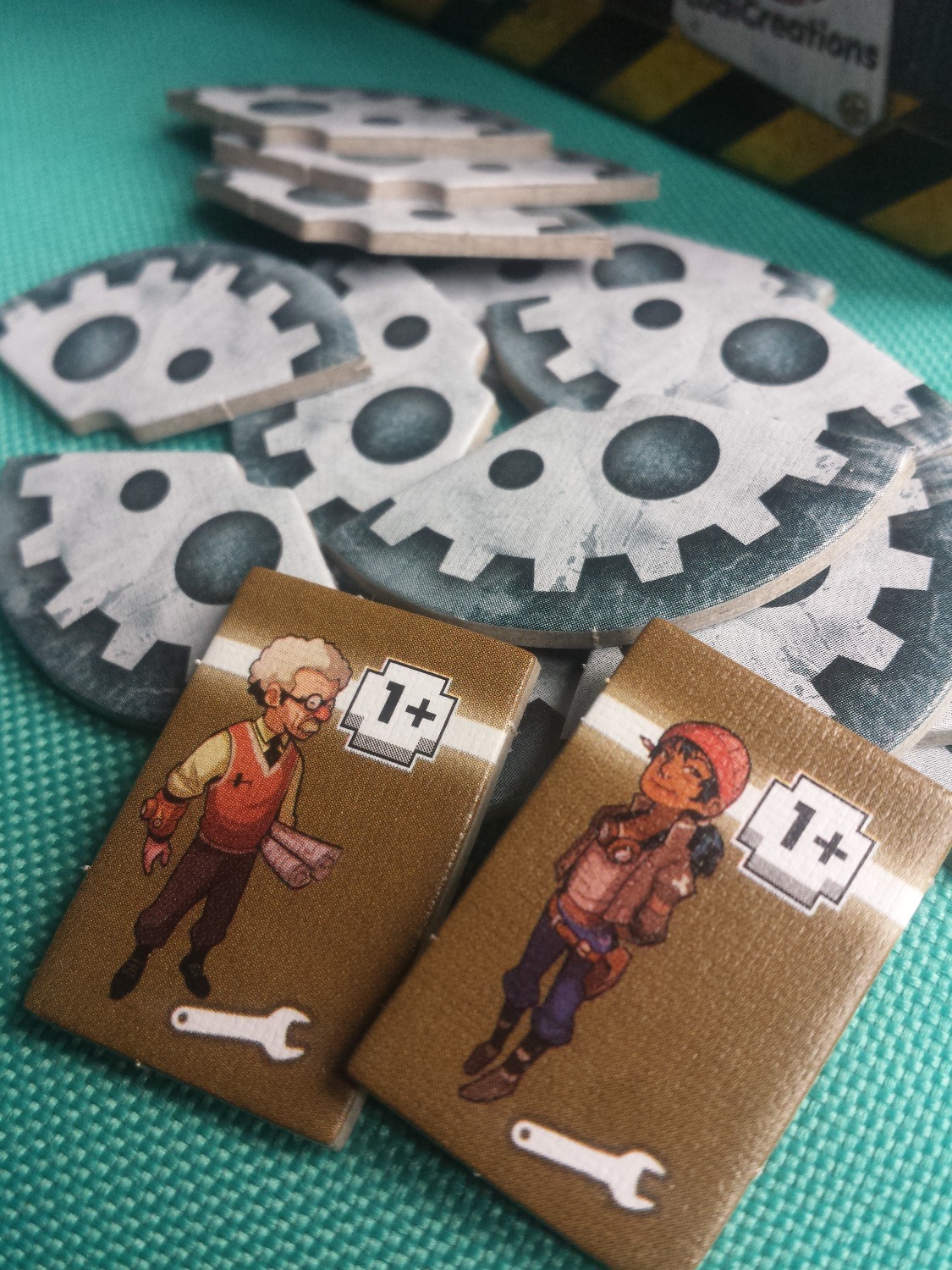
It comes with cog parts for scoring – gain 3 parts and complete your cog to win. The parts are nice, chunky cardboard and give a nice, tactile element to the game. I got the upgraded kickstarter cogs which are lovely steam-punk pieces and well worth paying a bit extra. One of the things that attracts people to games is the tactile nature of them. When I put games out at events, it is the ones with ‘nice pieces’ that people gravitate towards and these scoring pieces are an attractive addition.
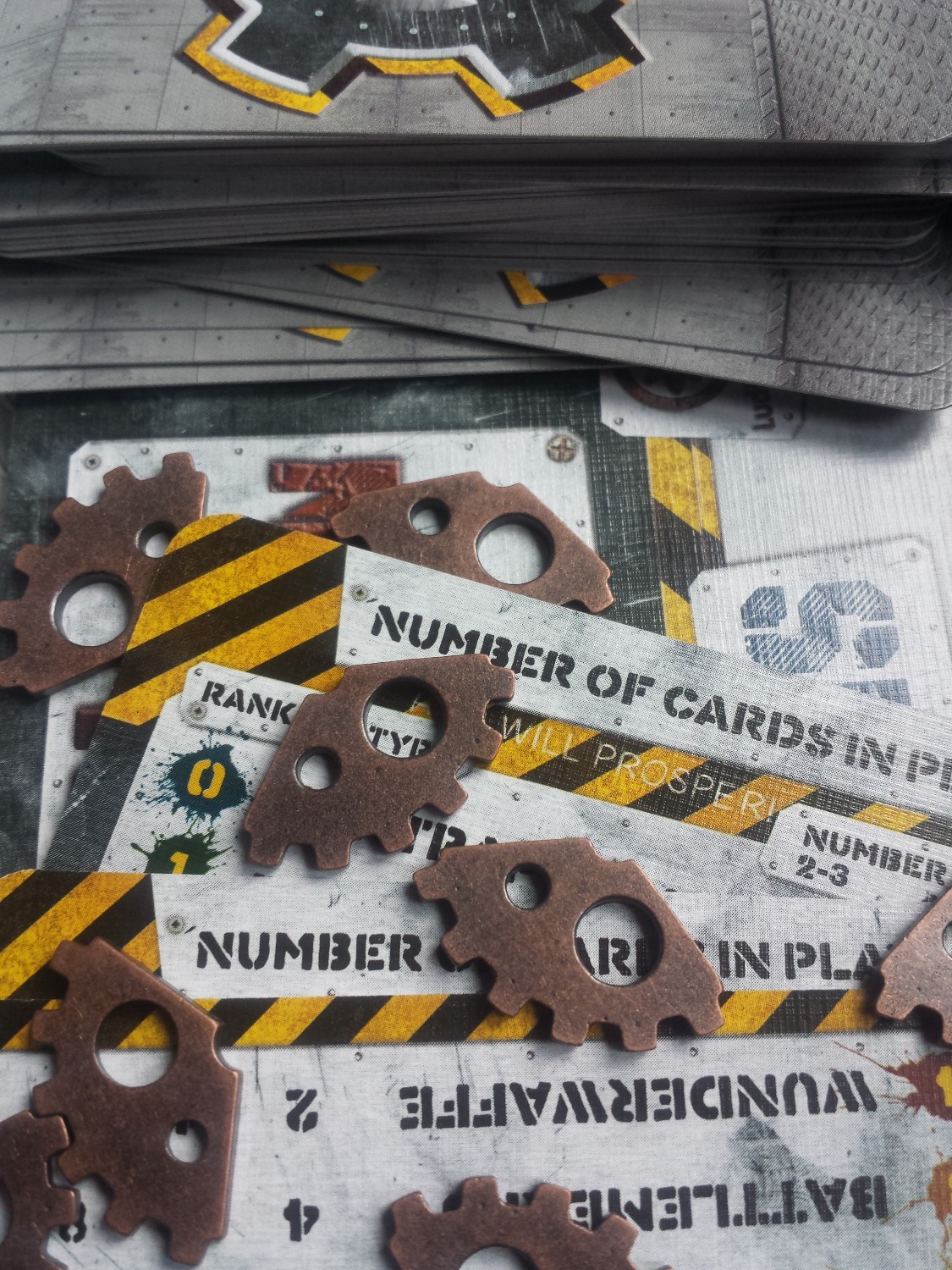
As with so many of my favourites it comes with a crib card – reminding you of the rules and numbers of each type of card in play – handy for tactical decisions. Unless your tactic is ‘keep playing Battlemeks and hope for the best!’
The cards feel durable and I like the size of the arena cards. Text and symbols on the cards are reasonably sized – although I feel like text can always go a bit bigger! Machine types are also differentiated by colour and when playing in a dimly lit bar there’s the usual is it red/ orange difficulty but as they are also labelled this is no big thing. Also you could argue that I could a. put my glasses on or b. not play games in dingy bars. Both, frankly unrealistic pieces of advice. The illustrations and symbols are all in keeping with the futuristic feel of the game. A future where I don’t need glasses and all bars have sensible lighting and decent sized tables hopefully.
One game of this is never enough. All in all, it’s a quick, vicious game – perfect for eliminating *ahem entertaining* your friends and loved ones.
Ludi Creations have also brought ‘…and then we held hands’ and ‘Mythe’ to the table so it is well worth checking them out.
